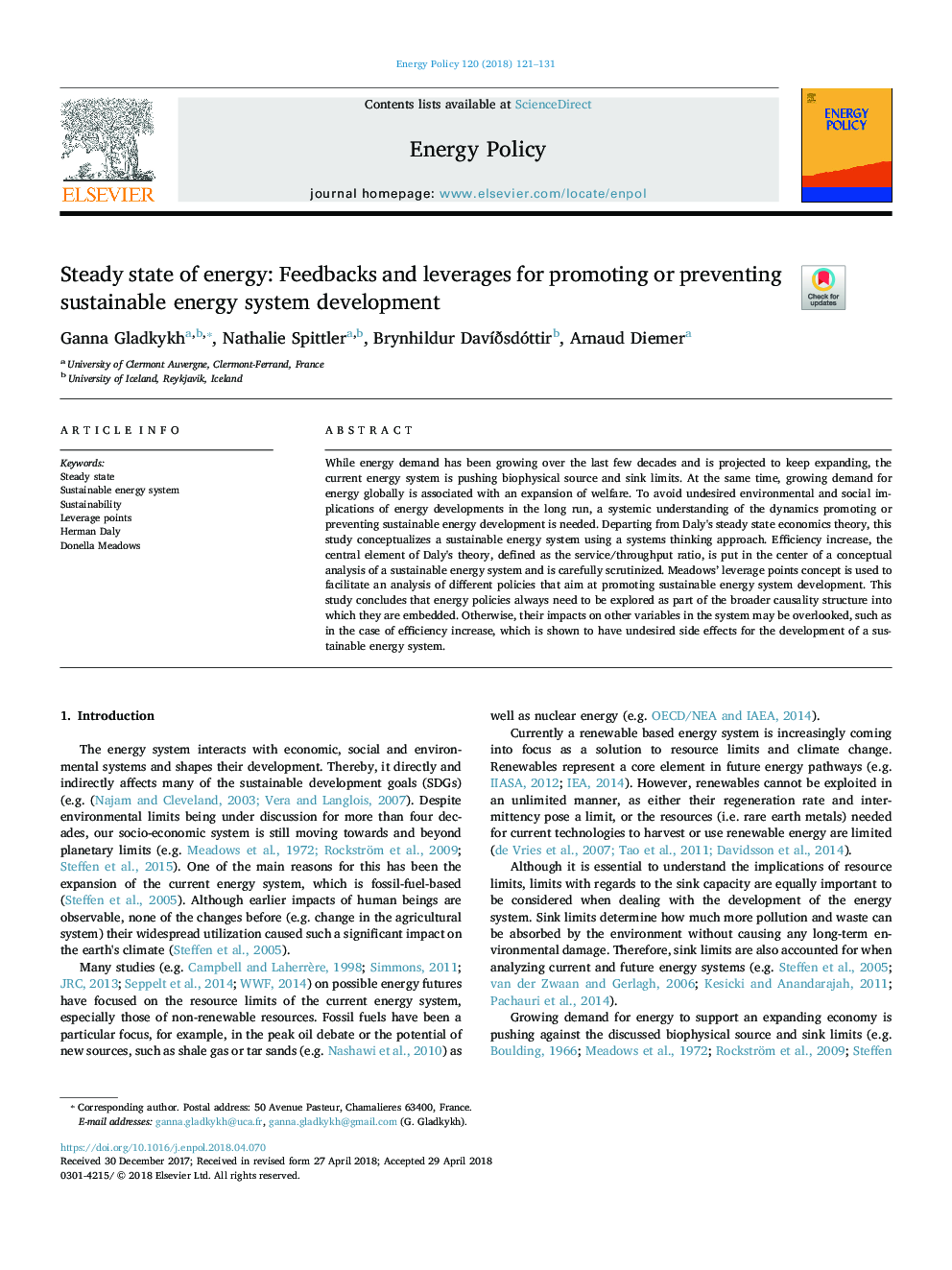| Article ID | Journal | Published Year | Pages | File Type |
|---|---|---|---|---|
| 7396788 | Energy Policy | 2018 | 11 Pages |
Abstract
While energy demand has been growing over the last few decades and is projected to keep expanding, the current energy system is pushing biophysical source and sink limits. At the same time, growing demand for energy globally is associated with an expansion of welfare. To avoid undesired environmental and social implications of energy developments in the long run, a systemic understanding of the dynamics promoting or preventing sustainable energy development is needed. Departing from Daly's steady state economics theory, this study conceptualizes a sustainable energy system using a systems thinking approach. Efficiency increase, the central element of Daly's theory, defined as the service/throughput ratio, is put in the center of a conceptual analysis of a sustainable energy system and is carefully scrutinized. Meadows' leverage points concept is used to facilitate an analysis of different policies that aim at promoting sustainable energy system development. This study concludes that energy policies always need to be explored as part of the broader causality structure into which they are embedded. Otherwise, their impacts on other variables in the system may be overlooked, such as in the case of efficiency increase, which is shown to have undesired side effects for the development of a sustainable energy system.
Related Topics
Physical Sciences and Engineering
Energy
Energy Engineering and Power Technology
Authors
Ganna Gladkykh, Nathalie Spittler, Brynhildur DavÃðsdóttir, Arnaud Diemer,
